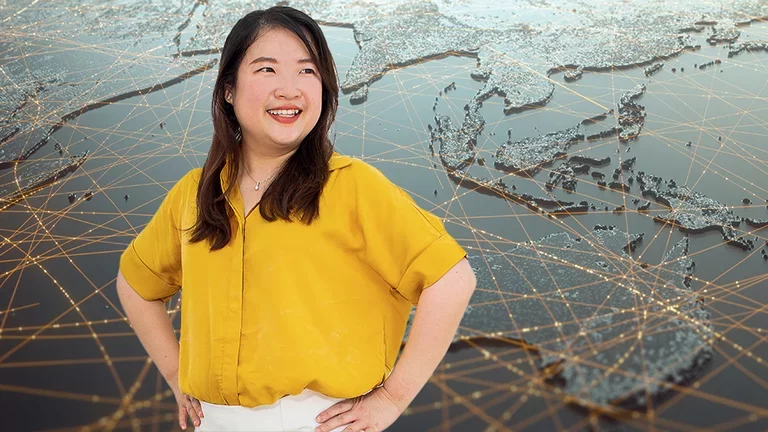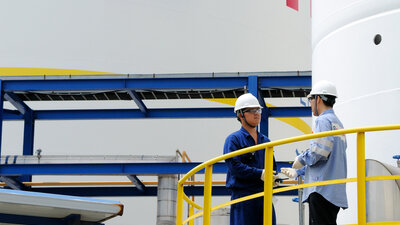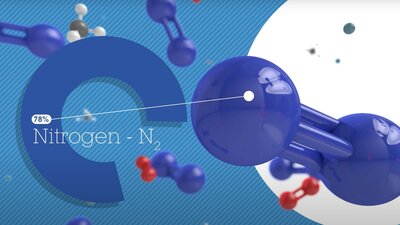Developing sustainable and responsible relationships with our suppliers
Published on September 09, 2021
4 minutes

Air Liquide’s sustainable procurement policy focuses on suppliers with best-in-class environmental, social, ethical and economic performance. From selecting sustainability-critical suppliers to identifying corrective actions and ensuring continuous improvement, close collaboration is critical every step of the relationship. Karen Quah, Senior Analyst, Sustainable and Collaborative Procurement for Air Liquide in Asia Pacific, tells us more.
Can you tell us a bit about yourself? What is your role at Air Liquide?
As Senior Analyst, Sustainable and Collaborative Procurement, I am responsible for monitoring and facilitating supplier risk management in the Asia Pacific (APAC) region. I ensure that the suppliers in our supply chain comply with our fundamental principles (safety and ethics) and our sustainable development objectives. Although it has been a challenging experience for me, I’m proud to contribute to Air Liquide’s sustainable procurement policy ambition to reach the highest possible standards on sustainable development issues.
How does Air Liquide choose its suppliers?
Before registering a new partner, Air Liquide identifies whether it is a sustainability-critical supplier (SCS), by taking into account the nature of its activity, our annual spend with the company, its country risk and its dependency on Air Liquide, particularly if more than 25% of its business depends on us. Each SCS’s sustainability performance is then assessed and corrective actions may be required if the supplier’s score needs to be improved. This is a very important step for Air Liquide as we have to make sure that shortlisted suppliers meet the requirements for our different identified risks, such as sustainability risk.
What are the main ingredients of a successful responsible collaboration?
Planning is the key to raising awareness among suppliers and buyers. First, we share the roadmap with the buyers for the APAC region so that they can plan and communicate with their suppliers. Then, communication is crucial to ensure that all APAC Procurement teams are well informed and comply with the expected requirements. In this regard, we provide training to all new buyers, annual refresher training to the current team and an annual webinar with our partner EcoVadis (a structure that provides holistic sustainability ratings service of companies) to explain the supplier assessment process and scoring methodology. The third key point is our continuous improvement process aimed at ensuring that all feedback from the team is properly addressed. We organize monthly individual follow-up calls to provide personalized support when necessary. Last but not least, here at APAC we believe that as a team we can achieve more together, hence all buyers share the same KPIs to ensure that our supplier sustainability risk management process is completely covered.
How does the Group assess suppliers’ sustainable development?
Suppliers are required to register on EcoVadis’s platform. Based on their profile–size, location and industry–EcoVadis will customize its assessment questionnaire, which suppliers must then answer. For example, if the supplier is from the road freight sector, the environmental aspect will be weighted more heavily due to the associated pollution, whereas for a consulting firm, a greater weighting would be given to ethical matters. An EcoVadis expert will then analyze and validate the documentation provided by suppliers. Following this analysis, we send corrective action plans in order to guarantee an effective company-wide risk management system. And as it can be quite challenging for suppliers to change their practices and policies, the Procurement teams work closely with suppliers to support them and to make sure that they comply with our sustainability performance requirements. Ultimately, suppliers improve their practices and thereby create more value for their own company.
What other measures have you introduced to develop sustainable relationships with suppliers?
We ensure that every new contract or framework agreement includes a specific sustainability clause. Beyond that, our new Procurement strategic plan aims to improve supplier relationship management and risk management. In order to redefine our relationship with suppliers, this plan emphasizes the importance of segmenting our suppliers depending on how critical they are to Air Liquide’s activity. For us, the challenge is to develop responsible and transparent collaboration with our suppliers, collaboration that leads to regular discussions on sustainability performance and risks, in order to define and monitor action plans and overall strengthen our relationships.

